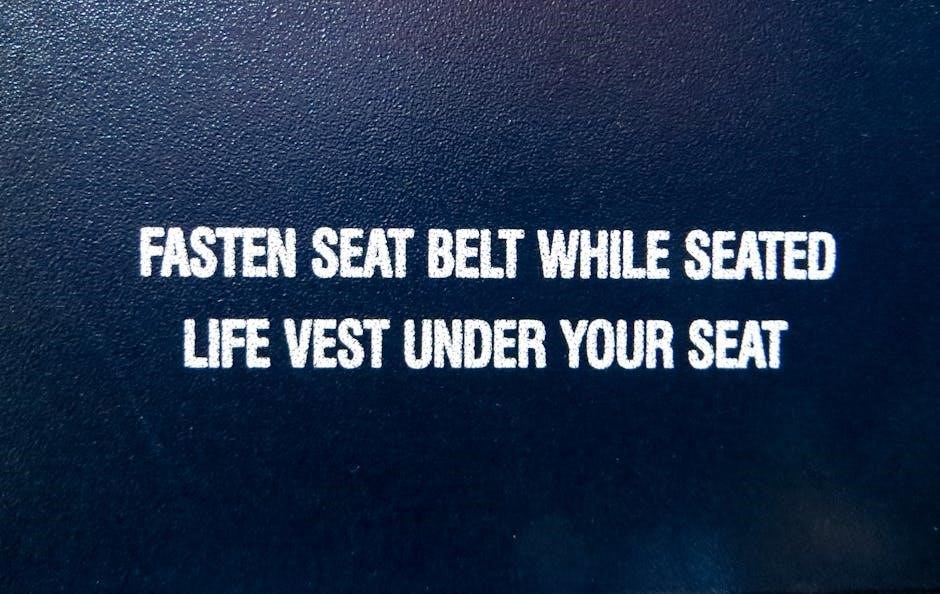The CBT-100S is New Jersey’s S Corporation Business Tax Return form, ensuring compliance with state tax regulations. It must be filed electronically, calculating taxable income and applying the minimum tax, while maintaining accurate records to prevent penalties.
1.1 What is the CBT-100S Form?
The CBT-100S is New Jersey’s official form for S corporations to report business income, deductions, and taxes. It is used to calculate taxable net income and apply the minimum tax. The form must be filed electronically and includes schedules like NJ-K-1 for shareholder distributions. It ensures compliance with state tax laws and is mandatory for all eligible S corporations operating in New Jersey.
1.2 Purpose of the CBT-100S Form
The CBT-100S form is designed for S corporations to report their business income, deductions, and taxes to New Jersey. Its purpose is to calculate taxable net income, apply the minimum tax, and ensure compliance with state tax laws. The form is mandatory for eligible S corporations and must be filed electronically, including schedules like NJ-K-1 for shareholder distributions, to accurately reflect financial activities.

Eligibility Criteria for Filing CBT-100S
Eligibility for filing CBT-100S applies to S corporations operating in New Jersey, ensuring compliance with state tax laws and proper reporting of business income and deductions.
2.1 Who Must File the CBT-100S Form?
The CBT-100S form must be filed by S corporations operating in New Jersey, including federal S corporations that elect and qualify under New Jersey tax laws. Foreign corporations owning New Jersey partnerships and entities classified as Qualified Subchapter S Subsidiaries (QSSS) are also required to submit this form annually.
2.2 Qualifications for S Corporation Status in New Jersey
To qualify as an S corporation in New Jersey, the entity must be a domestic corporation with 100 or fewer shareholders, issue only one class of stock, and have all shareholders consent to the S election. It must also file Form CBT-100S and meet federal S corporation requirements under I.R.C. §1361, submitting Form 2553 and 1120-S as needed.

Filing Requirements and Deadlines
The CBT-100S must be filed electronically, with deadlines tied to the corporation’s tax year. Extensions can be requested, and late filings may incur penalties, ensuring timely compliance.
3.1 Mandatory Electronic Filing
The CBT-100S must be submitted electronically through the New Jersey Division of Taxation’s online portal, NJ Premier. Electronic filing ensures accuracy and efficiency, reducing processing delays. Payments must also be made electronically, as mandated for all returns since January 1, 2019. Failure to comply may result in penalties, emphasizing the importance of adhering to this requirement for timely and compliant filing.
3.2 Key Deadlines for Submission
The CBT-100S return must be filed by the 15th day of the fourth month following the close of the taxable year, typically April 15th. An automatic six-month extension is available, extending the deadline to October 15th. However, payment of the minimum tax is due by the original deadline to avoid penalties. Ensure timely submission to maintain compliance with New Jersey tax regulations.

Key Forms and Documentation Needed
Essential forms include CBT-100S, CBT-100S-V for payments, and NJ-K-1 for shareholder distributions. Additional documentation may involve a Nexus Questionnaire and federal tax returns, ensuring compliance with submission requirements.
4.1 Overview of Required Forms (CBT-100S, CBT-100S-V, NJ-K-1)
The CBT-100S is the primary form for S corporations to report New Jersey taxable income. The CBT-100S-V is used for electronic payments. NJ-K-1 details shareholders’ income distribution. These forms ensure accurate tax reporting and compliance with state requirements, and must be submitted together to avoid penalties and delays in processing. Proper completion of these forms is essential for maintaining tax compliance.
Beyond the primary forms, filers must include a Nexus Questionnaire to establish business presence in New Jersey. This document helps determine tax liability and ensures proper apportionment of income. Additional records, such as federal tax returns and financial statements, may also be required to support the accuracy of the submitted forms and comply with state tax regulations. Timely submission of all documents is crucial for avoiding delays or penalties. Proper organization of these materials simplifies the filing process and ensures compliance with New Jersey’s tax requirements. Accurate and complete documentation is essential for a seamless tax filing experience. The step-by-step filing process involves gathering necessary information, completing the CBT-100S form accurately, and ensuring all required fields are filled. Electronic submission is mandatory, and proper documentation must be maintained for compliance purposes. To begin the filing process, gather all necessary information, including federal and New Jersey corporation identification numbers, financial statements, and Schedule NJ-K-1. Ensure accuracy by reviewing federal tax returns and state-specific documentation. Organize records to streamline data entry and avoid delays during form completion. Start by ensuring all necessary information is gathered. Complete each section systematically, beginning with federal tax details and proceeding to state-specific calculations. Accurately report taxable income, deductions, and credits. Verify all entries for accuracy to avoid penalties. Ensure compliance with electronic filing requirements and include any required schedules, such as Schedule NJ-K-1. Review the form thoroughly before submission. All payments for the CBT-100S must be made electronically. Use Form CBT-100S-V for payment vouchers. Ensure timely payment to avoid penalties and interest charges. Compliance is mandatory. Electronic payment is mandatory for all CBT-100S filings. Use Form CBT-100S-V for payment vouchers. Payments must be submitted through the New Jersey Division of Taxation’s online portal. Ensure accurate payment amounts to avoid penalties and interest. Detailed instructions for electronic payment are available on the NJ Division of Taxation website. Timely submission is required to comply with state tax regulations. The minimum tax for S corporations in New Jersey is $375 annually. This payment is required regardless of profitability. Use Form CBT-100S-V for payment. The minimum tax is calculated based on gross income and cannot be reduced by net operating losses. Ensure timely payment to avoid penalties and interest. Detailed guidelines are outlined in the CBT-100S instructions for accurate compliance. Always verify calculations before submission. To amend a CBT-100S return, use the form for the correct tax year, mark “AMENDED RETURN” on the front, and follow the provided instructions to correct errors accurately. To file an amended CBT-100S, obtain the form for the correct tax year, complete it accurately, and mark “AMENDED RETURN” on the front. Include any necessary documentation to correct errors or updates. Submit the amended return electronically, ensuring compliance with New Jersey tax requirements and avoiding penalties for inaccurate or incomplete filings. To correct errors on a previously filed CBT-100S, complete a new form, clearly mark it as “AMENDED RETURN,” and provide detailed explanations for the changes. Ensure all supporting documentation is attached. Submit the corrected return electronically, addressing any discrepancies promptly to avoid penalties and maintain compliance with New Jersey tax regulations, while ensuring accurate financial reporting. The CBT-100S requires several schedules and attachments, including Schedule A for taxable income computation and Schedule NJ-K-1 for shareholder income distribution. Additional documentation such as the Nexus Questionnaire may also be necessary to ensure accurate reporting and compliance with New Jersey tax regulations. Schedule A is a critical component of the CBT-100S form, detailing the computation of New Jersey taxable net income. It requires reporting taxable income before net operating losses and special deductions, with adjustments for items like federal, state, and municipal obligations. Proper completion ensures accurate tax calculations and compliance with New Jersey tax regulations, supporting the overall filing process. Schedule NJ-K-1 details each shareholder’s proportionate share of the S corporation’s income, losses, deductions, and credits. It is crucial for accurate tax reporting, ensuring each shareholder reports their share on personal tax returns. Proper allocation based on ownership percentages is essential, and the schedule must align with the main CBT-100S form for consistency and compliance. Annual filing of Form CBT-100S ensures S corporations meet New Jersey tax obligations. Compliance involves adhering to state-specific rules, including accurate reporting of income and special considerations for foreign entities. All S corporations must annually file Form CBT-100S, accurately reporting taxable income and ensuring compliance with New Jersey tax laws. Filings must include Schedule NJ-K-1 for shareholder distributions and maintain proper documentation to avoid penalties. Electronic submission is mandatory, and corporations must adhere to state-specific guidelines for timely reporting. Foreign corporations operating in New Jersey must file CBT-100S to report income and claim taxes paid by partnerships. They must adhere to state nexus rules and may require additional documentation, such as a Nexus Questionnaire, ensuring compliance with specific regulations and avoiding penalties through accurate reporting and timely submissions. Requests for extensions must be made using Form CBT-200-T. Failure to meet deadlines results in penalties, emphasizing the importance of timely filing and payment. To request an extension for filing the CBT-100S, use Form CBT-200-T. This form must be submitted electronically by the original due date of the return. The extension grants additional time to file but does not extend the payment deadline. Ensure the minimum tax is paid to avoid penalties and interest. Timely submission of Form CBT-200-T is crucial for compliance. Penalties and interest apply for late filing or payment of the CBT-100S. A penalty of 5% per month may be imposed on unpaid taxes, up to 25%. Interest accrues on unpaid balances. Failure to meet the minimum tax requirement can result in additional penalties. Timely payment and filing are essential to avoid these consequences and maintain compliance with New Jersey tax regulations. Maintain accurate and detailed records, including financial statements and tax documents, to support the CBT-100S filing. Retain records for at least three years. Proper documentation ensures compliance and simplifies audit preparation, reducing the risk of penalties and disputes with tax authorities. Proper documentation is essential for compliance and audit preparation. Maintain detailed financial statements, ledgers, and supporting files for all transactions. Ensure records are accurate, complete, and easily accessible. Retain documentation for at least three years from the filing date. Incomplete or missing records may result in penalties or delays during audits, making it crucial to organize and preserve all relevant materials meticulously. Prepare for audits by organizing financial records, including ledgers, bank statements, and supporting documentation. Ensure compliance with New Jersey tax laws and maintain accurate, detailed records for at least three years. Regularly review filings for errors and completeness. Keep copies of Form CBT-100S, Schedule NJ-K-1, and any additional documentation to facilitate a smooth audit process if required by the state. New Jersey requires adherence to specific filing rules, including nexus considerations and apportionment guidelines. Compliance with these ensures accurate tax reporting for S corporations and avoids penalties. New Jersey mandates electronic filing for the CBT-100S, requiring adherence to specific state tax laws. Corporations must submit necessary documentation, including the Nexus Questionnaire, to establish tax liability. Minimum tax payments are compulsory, and failure to comply may result in penalties. Ensure all submissions align with New Jersey’s unique regulatory requirements for accurate and timely filing. Determine if your corporation has sufficient nexus in New Jersey, triggering tax obligations. Apportionment rules allocate income based on business activities within the state. Ensure accurate calculation of taxable income by applying the correct apportionment percentages. Proper documentation of nexus and apportionment is essential to avoid discrepancies and ensure compliance with New Jersey tax regulations for S corporations. Common errors include incorrect Nexus Questionnaire submissions, missing NJ-K-1 forms, and late payments. Ensure timely filing and accurate data entry to prevent penalties and delays in processing. Common errors include incorrect or incomplete Nexus Questionnaire submissions, failure to attach Schedule NJ-K-1, and late or insufficient payments. Additionally, some filers miss deadlines or forget to claim P.L. 86-272 protections. Ensure all required forms are accurately completed and submitted on time to avoid penalties and delays in processing. To ensure accurate filing, thoroughly review CBT-100S instructions, verify all calculations, and cross-check with federal forms like 1120-S. Submit required schedules and documentation timely, utilize electronic filing for efficiency, and seek professional advice if needed. Regularly update on New Jersey tax changes and maintain organized records to facilitate smooth audits and compliance. Tax professionals provide expertise in navigating CBT-100S complexities, ensuring compliance and optimizing tax strategies. Their guidance is invaluable for complex filings, nexus determinations, and minimizing potential errors or penalties. Consult a tax professional when facing complex CBT-100S filings, such as understanding nexus requirements, apportionment, or resolving errors. Their expertise is crucial for ensuring compliance, optimizing tax strategies, and navigating unique situations like foreign corporation filings or amended returns, saving time and reducing the risk of penalties. Hiring a tax professional for CBT-100S filings ensures accurate completion, minimizing errors and penalties. They provide expert guidance on complex scenarios, such as nexus determinations, apportionment, and amended returns. Professionals also optimize tax strategies, reducing liabilities and maximizing savings. Their knowledge of New Jersey-specific rules and updates ensures compliance, while their support during audits offers peace of mind for businesses. The CBT-100S form may undergo revisions, such as electronic payment mandates post-2019. Taxpayers must stay informed via official notifications to ensure compliance with updated regulations and instructions. The CBT-100S may be updated to reflect electronic filing and payment mandates post-2019. Future revisions could include new fields for nexus determinations and apportionment calculations, especially for foreign corporations. Taxpayers should monitor official New Jersey tax authority updates to stay informed about any form changes, ensuring compliance with the latest regulatory requirements and instructions. Stay updated on CBT-100S changes by regularly checking the New Jersey Division of Taxation website. Subscribe to tax bulletins and newsletters for updates on electronic filing, nexus requirements, and form revisions. Review annual CBT-100S Instructions for new guidelines and ensure compliance with the latest regulatory changes to avoid penalties and ensure accurate filing. Consult tax professionals for clarification on complex updates. Filing the CBT-100S accurately ensures compliance with New Jersey tax regulations. Adhere to electronic submission requirements, meet deadlines, and stay informed to maintain proper corporate tax standing. Ensure all required forms (CBT-100S, NJ-K-1) are completed accurately; Verify federal and state tax numbers, calculate taxable income, and confirm electronic submission. Include necessary documentation and payments. Review for errors and maintain records for audit purposes, adhering to New Jersey’s compliance standards. Adhering to CBT-100S requirements ensures avoidance of penalties and fines. Compliance maintains good standing, builds trust, and upholds legal obligations. Accurate filing reflects financial integrity, supports business operations, and aligns with regulatory expectations, fostering a stable business environment;4.2 Additional Documentation (Nexus Questionnaire, etc.)
Step-by-Step Filing Process
5.1 Gathering Necessary Information
5.2 Completing the CBT-100S Form

Payment Instructions
6.1 Electronic Payment Requirements
6.2 Minimum Tax Payment Guidelines
Amended Returns and Corrections
7.1 How to File an Amended CBT-100S
7.2 Procedures for Correcting Errors
Schedules and Attachments
8.1 Schedule A: Computation of New Jersey Taxable Net Income
8.2 Schedule NJ-K-1: Shareholder’s Share of Income/Loss
Compliance and Reporting Requirements
9.1 Annual Reporting Obligations
9.2 Special Considerations for Foreign Corporations

Extensions and Penalty Information
10.1 How to Request an Extension
10.2 Penalties for Late Filing or Payment
Record Keeping and Audit Preparation
11.1 Maintaining Proper Documentation
11.2 Preparing for Potential Audits
State-Specific Instructions
12.1 New Jersey-Specific Filing Rules
12.2 Nexus and Apportionment Considerations
Common Mistakes to Avoid
13.1 Frequently Encountered Errors
13.2 Best Practices for Accurate Filing

Role of Tax Professionals
14.1 When to Consult a Tax Professional
14.2 Benefits of Professional Assistance

Future Changes and Updates
15.1 Anticipated Revisions to the CBT-100S
15.2 Staying Informed About Regulatory Changes
16.1 Final Checklist for CBT-100S Filing
16.2 Importance of Compliance
